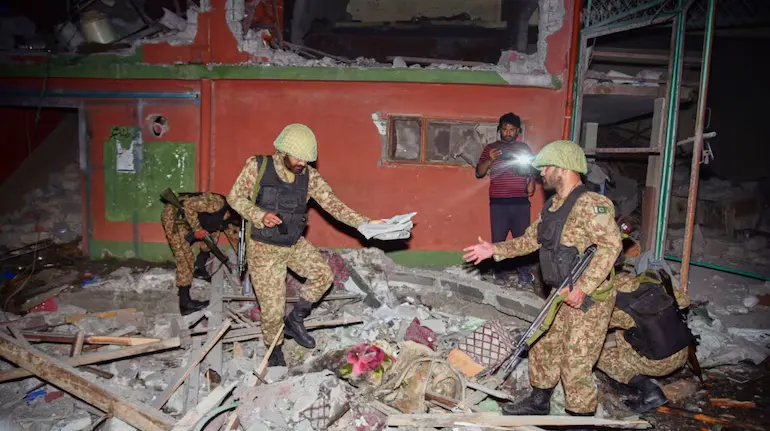In a significant escalation of hostilities, India launched a series of missile strikes into Pakistani-controlled territory early Wednesday, targeting nine locations across Pakistan-administered Kashmir and the Punjab province.
The operation, named “Sindoor,” was reportedly in retaliation for a massacre on April 22 in Indian-administered Kashmir, where 26 people, primarily Hindu tourists, were killed.
Casualties and Damage
The Pakistani military reported at least 26 fatalities and 46 injuries resulting from the Indian strikes. Among the dead were civilians, including women and children. Pakistan accused India of targeting civilian structures, such as mosques and residential buildings, in addition to alleged militant infrastructure.
Pakistan’s Response
The reported Indian strikes on Pakistan following the Kashmir massacre and Pakistan’s claims of downing Indian planes represent a dangerous escalation in an already volatile region. This situation has the potential to spiral into a larger conflict with devastating consequences.
Pakistan’s response has been swift and strong. The Pakistani government has vehemently condemned the reported Indian strikes, characterizing them as an act of aggression and a violation of its sovereignty. Critically, Pakistan claims its military forces shot down five Indian aircraft, a claim that, if verified, would significantly heighten tensions.
Pakistani officials have also indicated a readiness to defend their territory and have mobilized forces in response to the perceived threat. This rhetoric, combined with the claim of downed aircraft, signals a firm stance and raises concerns about potential retaliatory actions from Pakistan.
Both nations must exercise extreme restraint, prioritize diplomatic channels, and take immediate steps to de-escalate tensions to prevent further loss of life and regional instability. The international community has a crucial role to play in facilitating dialogue and mediating a peaceful resolution.
International Reactions
The United Nations Secretary-General António Guterres called for “maximum restraint” from both India and Pakistan, urging both nations to resolve their issues through peaceful means. The United States and China also expressed concern over the escalating tensions and urged both sides to avoid further military confrontation.
Historical Context
The India-Pakistan conflict over Kashmir dates back to the partition of British India in 1947 and has led to multiple wars and skirmishes between the two nuclear-armed nations. The region of Kashmir, with its majority-Muslim population but Hindu ruler at the time of partition, became a flashpoint.
The First Kashmir War in 1947-1948 resulted in the division of the territory, with India controlling approximately 43% and Pakistan 37%, separated by a Line of Control (LoC). A further 20% is under Chinese administration.
Further wars in 1965 and 1971 and a brief but intense conflict in Kargil in 1999 have punctuated the ongoing tensions. These conflicts, along with frequent cross-border skirmishes and accusations of supporting militant groups, demonstrate the deep-seated animosity and mistrust between the two countries.
The 2019 Balakot airstrike, where India retaliated against a terror training camp in Pakistan following a suicide attack in Kashmir, and the subsequent military standoffs serve as a stark reminder of the recent escalations and the ever-present risk of conflict. Both nations possess nuclear weapons, making any large-scale conflict a matter of global concern.
Both nations must exercise extreme restraint, prioritize diplomatic channels, and take immediate steps to de-escalate tensions to prevent further loss of life and regional instability. The international community has a crucial role to play in facilitating dialogue and mediating a peaceful resolution.

Outlook
Analysts suggest that while full-scale war remains unlikely due to nuclear deterrence, the potential for miscalculation remains high. The international community continues to monitor the situation closely, urging both nations to exercise caution and engage in dialogue to de-escalate tensions.
Final Verdict
The reported Indian strikes on Pakistan following the Kashmir massacre and Pakistan’s claims of downing Indian planes represent a dangerous escalation in an already volatile region. This situation has the potential to spiral into a larger conflict with devastating consequences.
Both nations must exercise extreme restraint, prioritize diplomatic channels, and take immediate steps to de-escalate tensions to prevent further loss of life and regional instability. The international community has a crucial role to play in facilitating dialogue and mediating a peaceful resolution.



